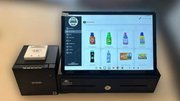News
New global standard to 'make product recall more effective'
June 13, 2012
Improving product and consumer safety in the global supply chain is critical, which is why GS1, a not-for-profit organization that designs and manages a global system of supply chain standards, has ratified a new global product recall standard, along with an implementation guide for multi-jurisdictional recall notifications.
As global food trade increases, food safety is becoming a significant public health issue. In fact, there are 48 million cases of food borne illnesses each year in the U.S. with 150,000 hospitalizations and 3,000 deaths, according to a 2010 report from the United States Center for Disease Control.
"The GS1 Product Recall Standard will enable manufacturers, retailers and suppliers to work more closely together," Daniel Triot, Procter & Gamble's market logistics leader, said in a press release. "By leveraging a system of global supply chain standards that we all know and use today, product recall will become a function that is embedded into all our global supply chains. Critical mass adoption and interoperability of the notification tools will accelerate the implementation of the standard."
The standard defines, standardizes and harmonizes the critical attributes to be captured and shared among trading parties and regulators during a product recall alerting and messaging process. It also complements and extends the existing GS1 Traceability Standard that provides companies with a well-defined traceability process to meet regulatory requirements, building upon existing GS1 standards that are widely used in most supply chains around the world, according to the release.
"The work on product recall facilitated by GS1 is responding to real industry needs and will enable companies to build supply chains that are not only more efficient, but also safer," Miguel Lopera, president and CEO of GS1, said in the release. "Product recall is a key part of GS1's vision where information about products can be easily exchanged for the benefit of businesses and consumers."
The standard is incorporated into country-specific, GS1-standards based recall platforms, including Rapid Recall Exchange in the United States. Users of this service do not need to make changes to their processes to take advantage of the new standard.
 ChatGPT
ChatGPT Grok
Grok Perplexity
Perplexity Claude
Claude




